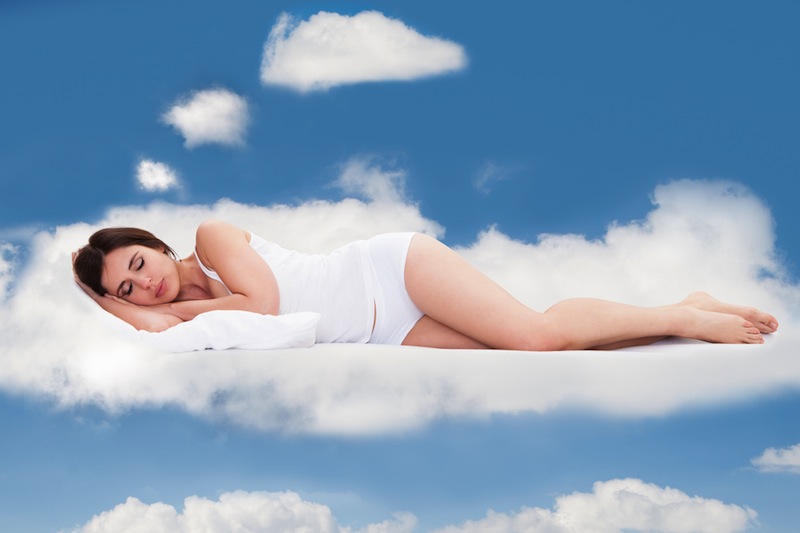Turn Off to Tuck In: 5 Sleep Tips for Gadget Junkies

Nearly 100 million Americans have difficulty falling to sleep or sleeping soundly, regardless of how exhausted they might be, according to the Centers for Disease Control and Prevention. Maybe you're one of them.
This modern world seems to have exacerbated the sleep problem, with street and home illumination turning night into day, and with the Internet — and the countless gadgets that access it — further blurring the distinction between the time for work and play and the time for sleep.
Poor sleep not only results in lost productivity, but also ultimately takes its toll on health. Doctors now see poor sleep as a contributing factor to diabetes, obesity, cardiovascular disease and depression.
Yet getting a good night's sleep isn't necessarily just a matter of carving out a seven- or eight-hour block of time. Live Science talked with Nancy H. Rothstein, a sleep expert and business consultant, and learned these five tips to help gadget junkies sleep better.
1. Make sure the gadgets go to bed an hour before you do. Following this rule does more than simply give your brain time to chill out, Rothstein said. The blue-spectrum light emitted from computers and hand-held devices inhibits the flow of melatonin, a hormone necessary for sleep. A study published in 2011 by scientists at Thomas Jefferson University in Philadelphia and NASA demonstrated this finding and, conversely, found that blue light was quite effective at inducing alertness. [9 Odd Ways Your Tech Devices May Injure You]
2. Can't part with your gadgets? Then try blue-wavelength blockers. Sometimes it's just not possible to turn off the computer an hour before bedtime. Many people use those late hours after the kids are in bed to keep track of finances, pay bills online, or catch up on the day's (or week's!) email. If this is you, Rothstein said, your plan B could be to invest in a pair of blue-wavelength-blocker glasses.
Several small studies have demonstrated the positive effect of blue-wavelength blocking on sleep quality. Doctors in China have implanted blue-wavelength-blocking lenses in cataract patients to improve their sleep. And doctors in Canada have given such blockers to night-shift workers, so that the morning's bright blue light, seen on their commutes home, doesn't disturb their ability to sleep.
Sign up for the Live Science daily newsletter now
Get the world’s most fascinating discoveries delivered straight to your inbox.
3. Take the tech out of the bedroom. Numerous studies reveal how bedroom televisions, in particular, promote poor sleep habits and deter from restful sleep. "Save your bed for sleep and the other 's,'" Rothstein said. "Think of your bedroom as your sleep sanctuary, not your entertainment center or auxiliary office."
4. Skip the nightcap. Think a nip of alcohol will help you sleep better? This is a long-standing health myth. Although a drink might help you get to sleep faster, it also interrupts sleep cycles and reduces rapid eye movement (REM) sleep, the kind that's needed for mental and physical rejuvenation, Rothstein said.
The end result is poorer sleep. A review published in 2013 examining more than two dozen previous studies on alcohol and sleep revealed how any amount of imbibing within a few hours before going to bed will interfere with REM sleep. The more alcohol in a person's body, the less REM sleep they got, the researchers found.
5. Cut off caffeine by the afternoon. Many people drink coffee or other caffeinated drinks to help wake up and keep going through the day. It may be surprise you how long the caffeine stays in the body, however: Half of it is still circulating six hours after you drink it, according to the National Sleep Foundation. Sleep experts such as Rothstein recommend cutting off consumption of caffeinated drinks, including energy drinks, by the late afternoon.
Watch the soft drinks, too. Cola has about a third of the caffeine as coffee, so several bottles of some soda later in the day could disturb your precious sleep.
Of course, for the general population, factors such as a healthy diet and stress reduction will help ensure a better night's sleep, too.
Follow Christopher Wanjek @wanjek for daily tweets on health and science with a humorous edge. Wanjek is the author of "Food at Work" and "Bad Medicine." His column, Bad Medicine, appears regularly on Live Science.

Christopher Wanjek is a Live Science contributor and a health and science writer. He is the author of three science books: Spacefarers (2020), Food at Work (2005) and Bad Medicine (2003). His "Food at Work" book and project, concerning workers' health, safety and productivity, was commissioned by the U.N.'s International Labor Organization. For Live Science, Christopher covers public health, nutrition and biology, and he has written extensively for The Washington Post and Sky & Telescope among others, as well as for the NASA Goddard Space Flight Center, where he was a senior writer. Christopher holds a Master of Health degree from Harvard School of Public Health and a degree in journalism from Temple University.









